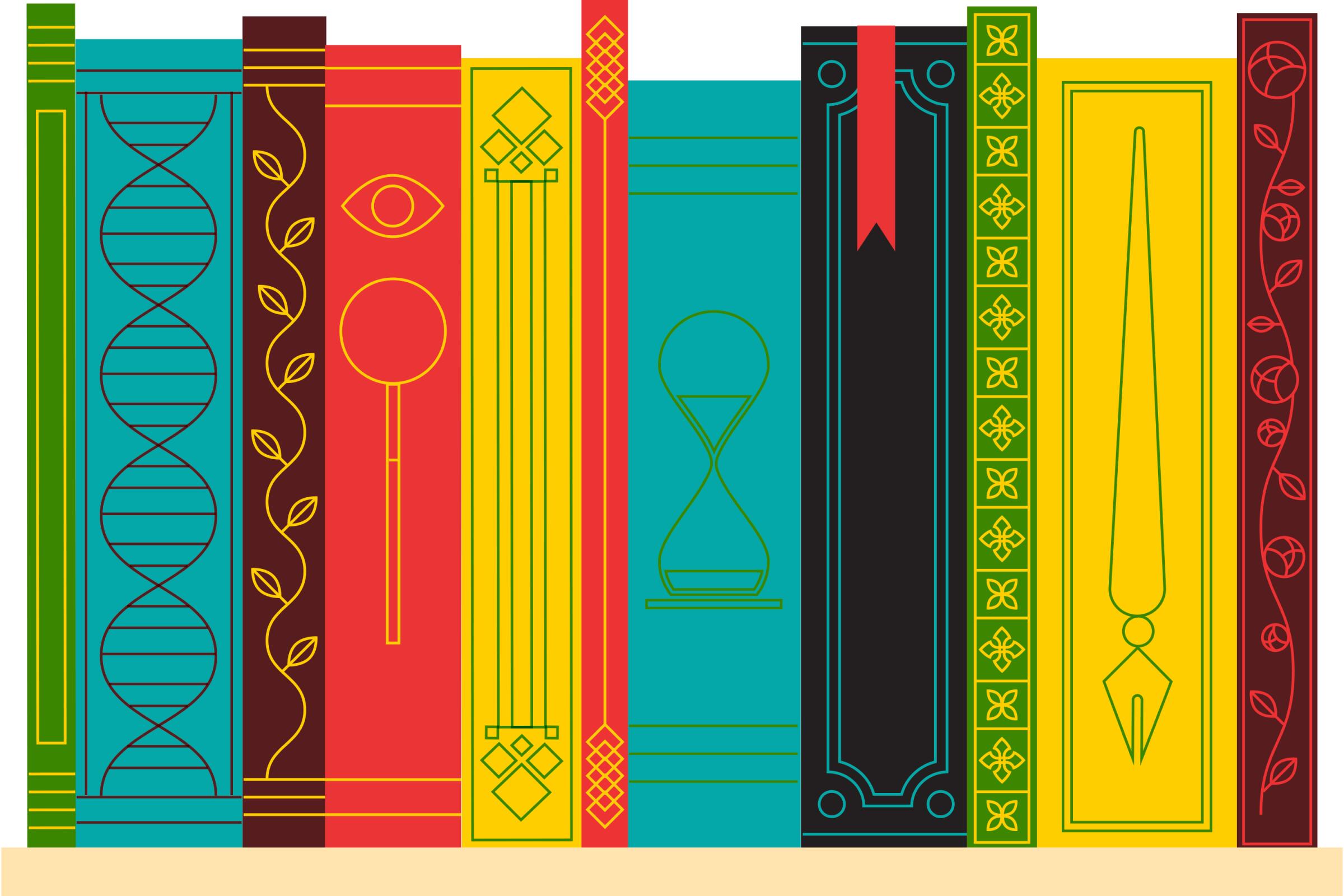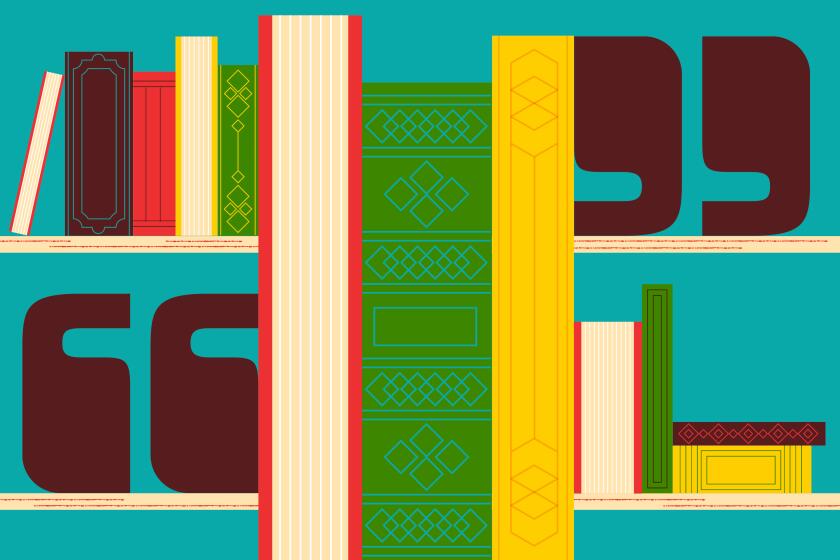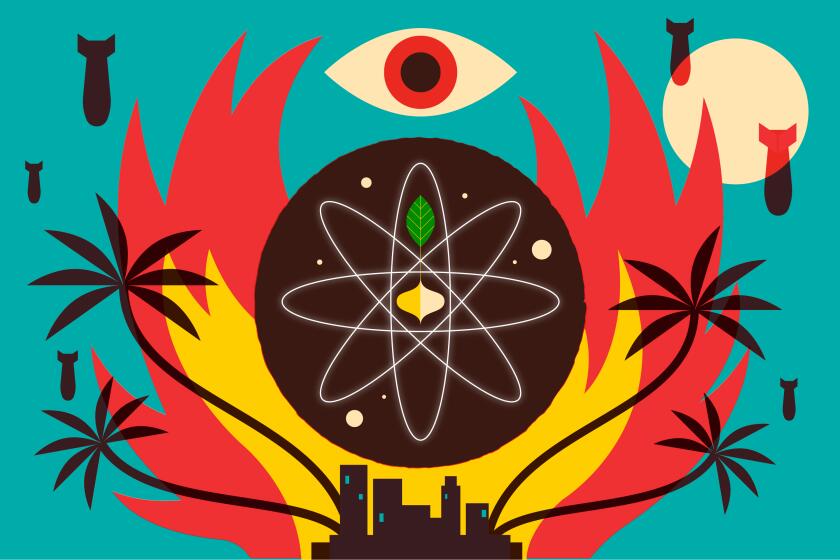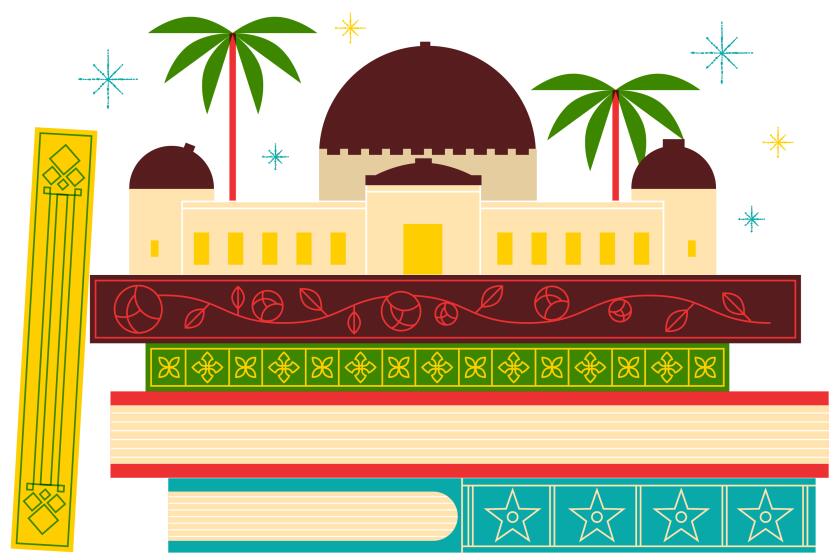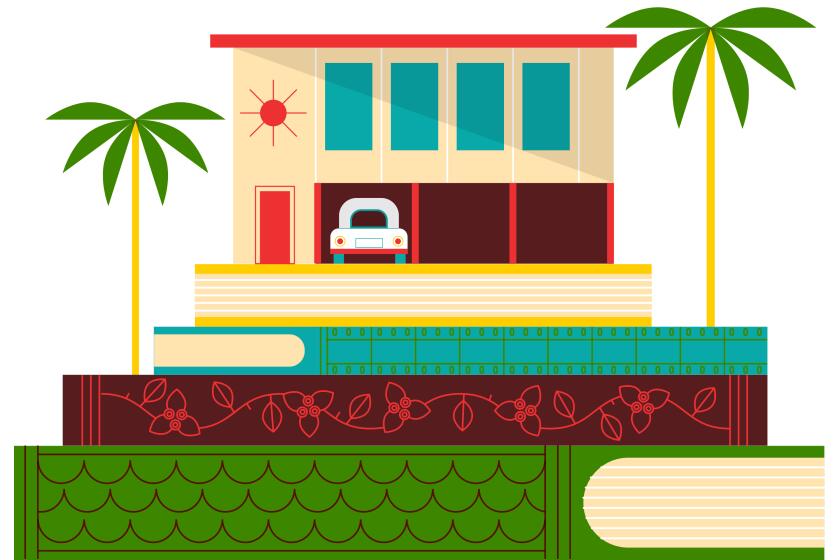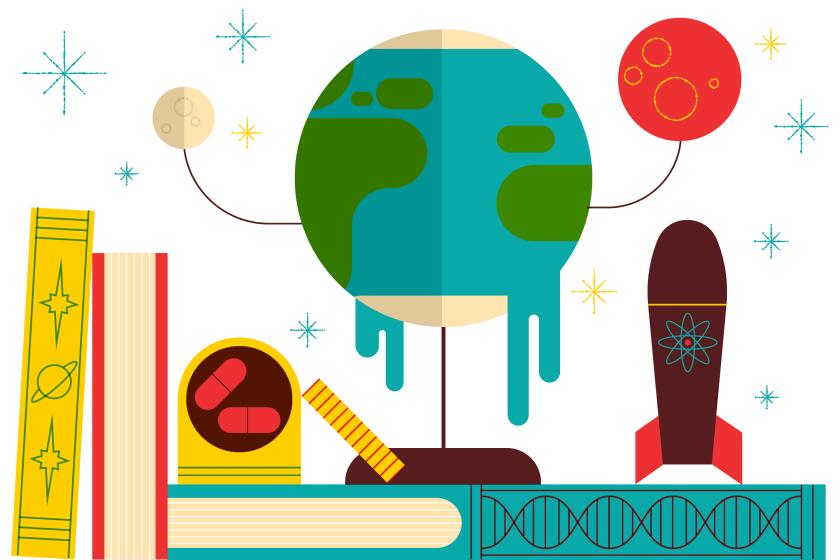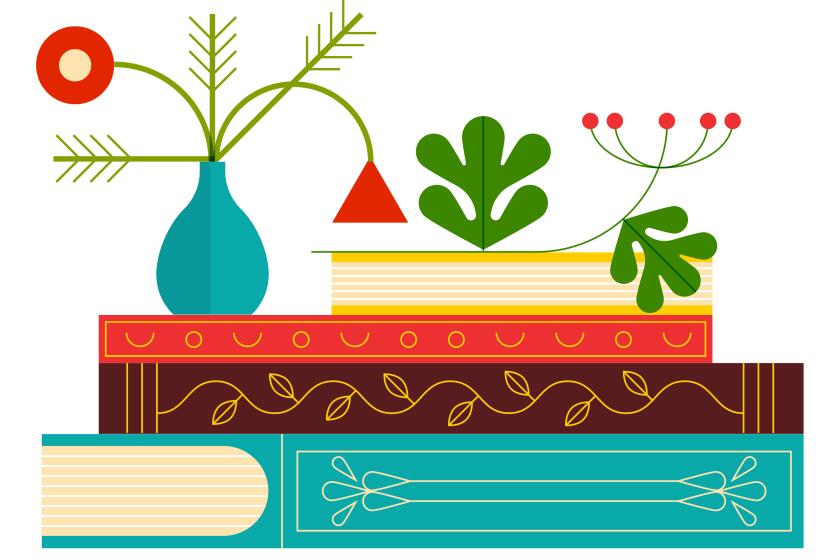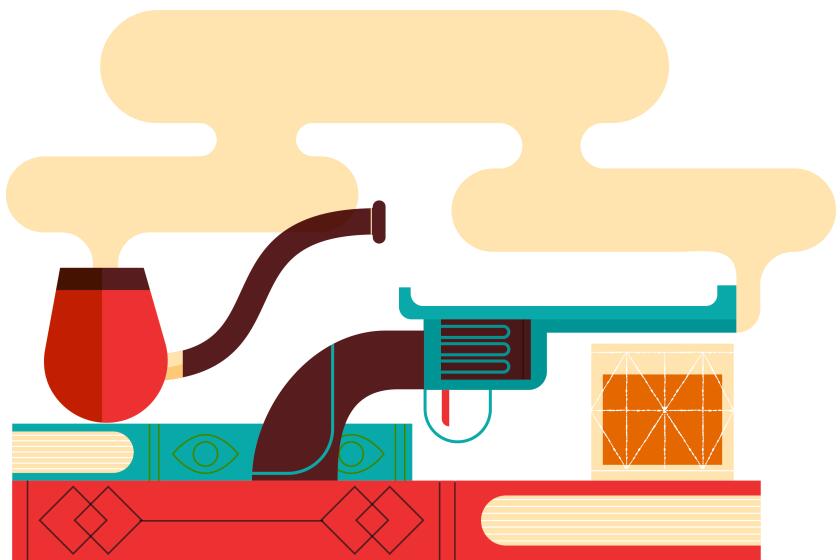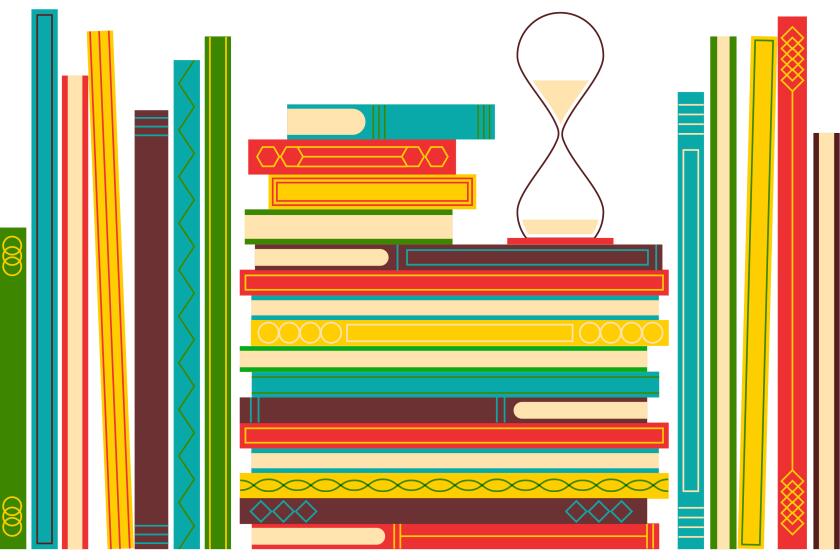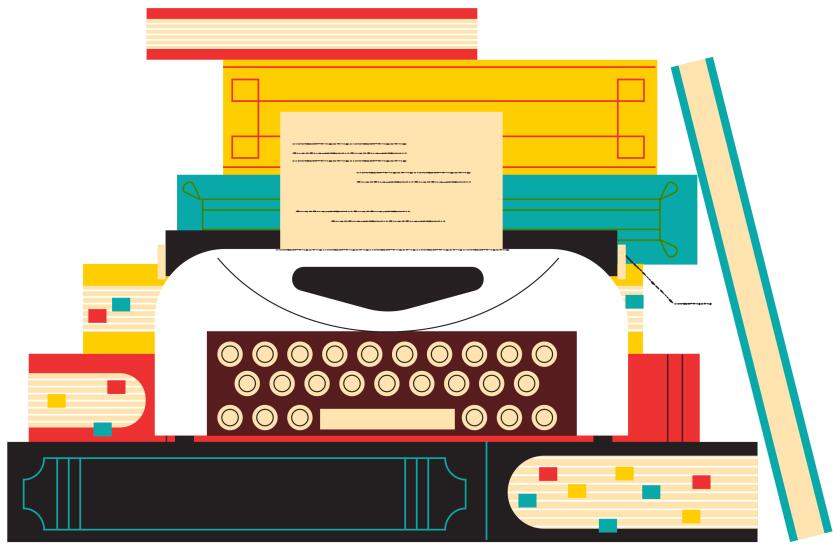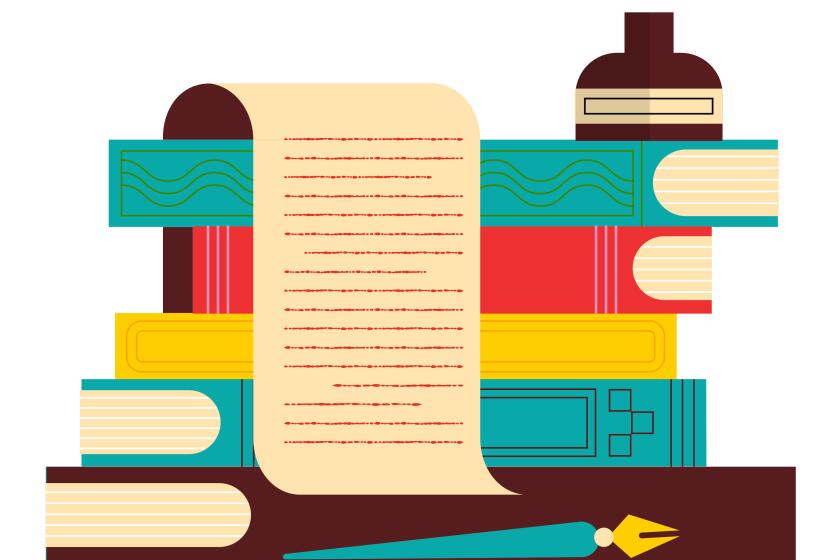Whether you were born in Los Angeles or arrived yesterday, there is one thing you know: The city is both instantly recognizable and permanently elusive. Fortunately, its literature is vast and highly entertaining: a library of great migrations, Hollywood dirt, essays on place, histories of power and some of the earliest, best works of noir, sci-fi and fantasy. Much of what you need to know — and feel — to love the real L.A. is in those books.
In time for the 2023 Times Festival of Books, we have assembled the ultimate bookshelf in that library, a browsable, well-organized array of 110 works that define Los Angeles.
How did we approach this daunting task? By asking writers with deep ties to L.A. to name and explain their favorites. Ninety-five of them responded with more than 500 titles, which we culled and annotated with capsule and quotes.
Our ultimate bookshelf is sorted into eight categories: fiction; mystery and crime; nonfiction; speculative; poetry; essays; short stories; memoirs or biographies. (Yes, these are somewhat arbitrary, in the way of all lists.) The category lists are below, but we’re not done yet. Watch this space in the days ahead for essays by and about list-topping writers, selected quotes from our survey respondents and a ranked list of their most frequently recommended books. (Place your bets now.)
One last note: In each genre, we aimed to include one book published before 1930, one book per decade until 2000 and then five works from the current century. It didn’t always work out that way: Making a list like this means embracing the unpredictable. Besides, one thing you can be sure of — and see David Kipen’s essay for more about this — is that in truth there is no end-all be-all bookshelf. L.A.’s canon, more than most, is constantly expanding, evolving, shedding its old skins, just like the city itself.
— Boris Kachka
